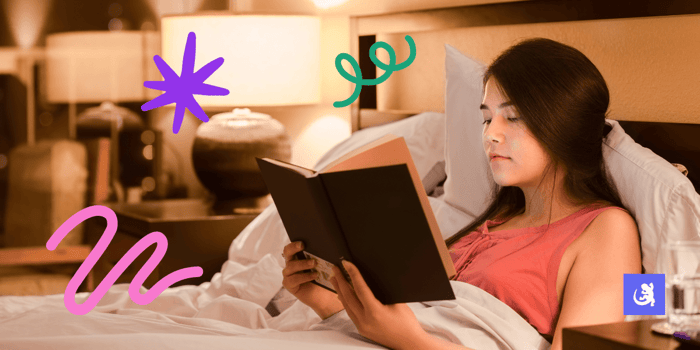Ace Your Exams: Science-Backed Strategies for Exam Season Success
Discover science-backed strategies to ace exam season without stress. Learn effective study habits, boost brain power, and master exam-day techniques.

We all have been there before, caught with pen in hand, studying in bed because it feels like the best environment. If the brain must be tasked, the body can at least be in the most comfortable position possible, right? However, is this comfy, familiar space best for effective study and ultimate academic success? Is there any possible way to make studying in bed work? And is studying in bed healthy? Come explore both sides of the bedtime study sensation.
Most people can agree with and understand the appeal of studying in bed. Amidst all the fluffy pillows and relaxed atmosphere, textbooks can feel less daunting. The environment eliminates most of the study-associated stress, and you can simply get to your studying part without changing location or setting up your workspace.
Some people tend to be aided by the coziness of their bed. Picture a rainy afternoon, the subtle pitter-patter on the window mixing with the calm hum of your favorite study soundtrack. Imagine the gentle breeze whistling against the window as the rain continues, and you are wrapped under a warm blanket. Difficult topics can suddenly appear less intimidating in such a scenario.
Although undeniably comfortable, distractions abound when you study in bed. Most people know about the every-once-in-a-while phone check to see whether the best friend has replied yet. That simple glance can turn into hours of scrolling through TikToks. The appealing call of a mid-study nap can be much harder to fight when you are already in a position for it. You may wake up hours later and realize that time was wasted because no study was done.
It may not be readily apparent to you as a student, but lying down or crouching against pillows as you study makes for bad posture. This can lead to pain and discomfort, which hinder further concentration. Also, conditioning your brain to associate your bed with study can make it difficult to fall asleep when it is time to rest, and you could unknowingly mess your sleep cycle up.
If the thought of leaving your comfortable bed-study arrangement completely makes you feel depressed, don't give up! You may maximize your time for bed to increase productivity.
Even with tweaks and boundaries in place, studying in bed should be for brief periods only. Regularly take breaks and move around. Stretch your muscles by walking around the house and keep your heart rate slightly up.
The best action may be to explore study spaces available in your home. A traditional desk and chair provide a clear distinction between study and sleep. An armchair in a well-lit living room corner may work fine if you are short on space. If distractions are minimal, even the kitchen table can serve as a surprisingly productive workspace.
The goal is to personalize your study space with elements that inspire you. You could add a quote, timeless artwork, pictures of role models, or even a plant for a touch of nature. Basically, anything that puts you in a productive mindset. Experiment, and adopt what works best for you. A co-working space or library may suffice if you would like a more social setting. Alternatively, you could get the best of both worlds by tuning in to your favorite academic content creator’s study-with-me session for the illusion of having someone else around as you study.
Although it is not advised, some responders on Reddit discuss how studying in bed works for them. One user said, “I completed four years of an honors degree mostly from bed and ended up with a first class. Now, with working from home I continue that in bed too. If it works, it works.” Another user said, “yes, I’m a college counselor and I regularly give this advice. Due dates don’t go away because I am sick.”
Reviewing your notes before bed can be an excellent method for information retention. After a demanding day, reading a lighthearted chapter before falling asleep can be a soothing way to relieve stress. The secret is moderation; do brief study sessions in bed to supplement your primary study schedule elsewhere.
When all the cards are down, the best study environment allows you to focus, easily remember information, and still be comfortable. It could be your home workspace, bed, or favorite corner of your neighborhood coffee shop. Discipline is what will make your study efforts count in the long run, especially with studying in bed. Plan carefully, set boundaries, and transform your bed into a space for moderately focused study.
Discover science-backed strategies to ace exam season without stress. Learn effective study habits, boost brain power, and master exam-day techniques.
Tips for last-minute studying & cramming for exams: planning your approach, active learning strategies, taking breaks & pulling a productive all-nighter.
Overreliance on academic validation can harm motivation and self-worth. Learn to balance external praise with inner drive for healthier academic success.
Explore the Quizgecko platform and create your first online quiz, test or assessment. No credit card required.